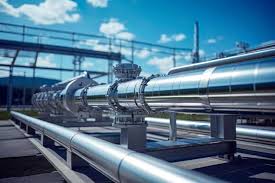South Sudan is reported to be seeking funding from the Chinese government to build the South Sudan-Djibouti Crude Oil Pipeline, which will be an alternate pipeline that is set to run all the way through the port of Djibouti from Ethiopia.
In a period of over a year of fighting between the Sudanese Armed Forces (SAF) and the Rapid Support Forces (RSF) has destroyed the existing oil infrastructure.
Major Reason for the Development of the Project
South Sudan’s President Salva Kiir, at a meeting with senior Chinese officials, said an alternative pipeline is needed following the halt in the flow of oil due to conflict in the neighboring country Sudan.
South Sudan’s presidency, in a statement on the state-owned television (SSBC), clearly pointed out that building new pipelines to Djibouti through Ethiopia to revitalize oil exports appears the option for consideration.
Developer of the South Sudan-Djibouti Crude Oil Pipeline Project
The statement followed a meeting President Kiir held with the China National Petroleum Corporation, who will be partnering with the country to develop the project (CNPC) which entailed the discussions of reforms in the oil sector, including improving production, building a new refinery, and strengthening the general distribution network throughout the country.
South Sudan’s President Salva Kiir gave reaffirmation of his government’s commitment to unlocking the country’s oil potential and improving energy security to facilitate infrastructure projects.
The president of CNPC, Dai Houliang, reiterated the corporation’s commitment to its strategic partnership and willingness to corporate with the East African country, South Sudan.
Significance of the Project
This proposed alternative pipeline to Djibouti via Ethiopia is expected to enhance export capabilities and support expanded extraction in Blocks 3 and 7.
Additionally, Dai highlighted crucial areas of collaboration that could yield mutual benefits between both parties i.e. China and South Sudan. With the South Sudanese government tasked with the responsibility of ensuring and providing security assurances to ensure the safety of workers, the head of the Chinese corporation vowed to commit to the partnership.
“Mr. Dai also assured President Kiir of the corporation’s willingness to work closely with South Sudan so as to ensure smooth flow operations of infrastructure projects and the continuous exploration of new oil reserves in the Country to boost the country’s general equitable development,” the statement reads in one of its sections.
Moreover, the Under Secretary of the Ministry of Petroleum, Chol Deng Abel, conveyed President Kiir’s vision for investment in green energies, signaling a quite progressive approach to energy development that is deemed to be in line with global trends toward sustainability and inclusive diversification in the energy sources.
Moreover, just to note, South Sudan greatly depends on oil proceeds it exports to the international market through neighbouring Sudan. The country’s total oil revenues account for over 90 percent of South Sudan’s annual budget therefore making the commodity a very crucial economic stronghold of the country.
Similar Projects
In another similar project, South Sudan and neighbouring Ethiopia reached an agreement to enhance border security and trade by building alternate oil infrastructure.
This agreement was reached on July 6, 2024 by governors and administrators on the common border between South Sudan and Ethiopia during which the two sides held extensive discussions on quite a number of issues.
Additionally, as revealed by the officials, the discussions held were cordial in an honest manner.
Significance of the Ethiopia-South Sudan Oil Pipeline Project
Lastly, this meeting that was held is considered a step towards building consensus on common interests for the two countries through collaboration on physical infrastructure development to enhance trade, security, and investment. Furthermore, it commits the two countries to corporate work together to promote and strengthen economic cooperation to achieve both economic growth and prosperity for the mutual benefit of the two countries and for this reason, several resolutions were issued after long discussions were held.
South Sudan’s Cabinet Approves US$150 Million Juba Solar Project

Leave a Reply